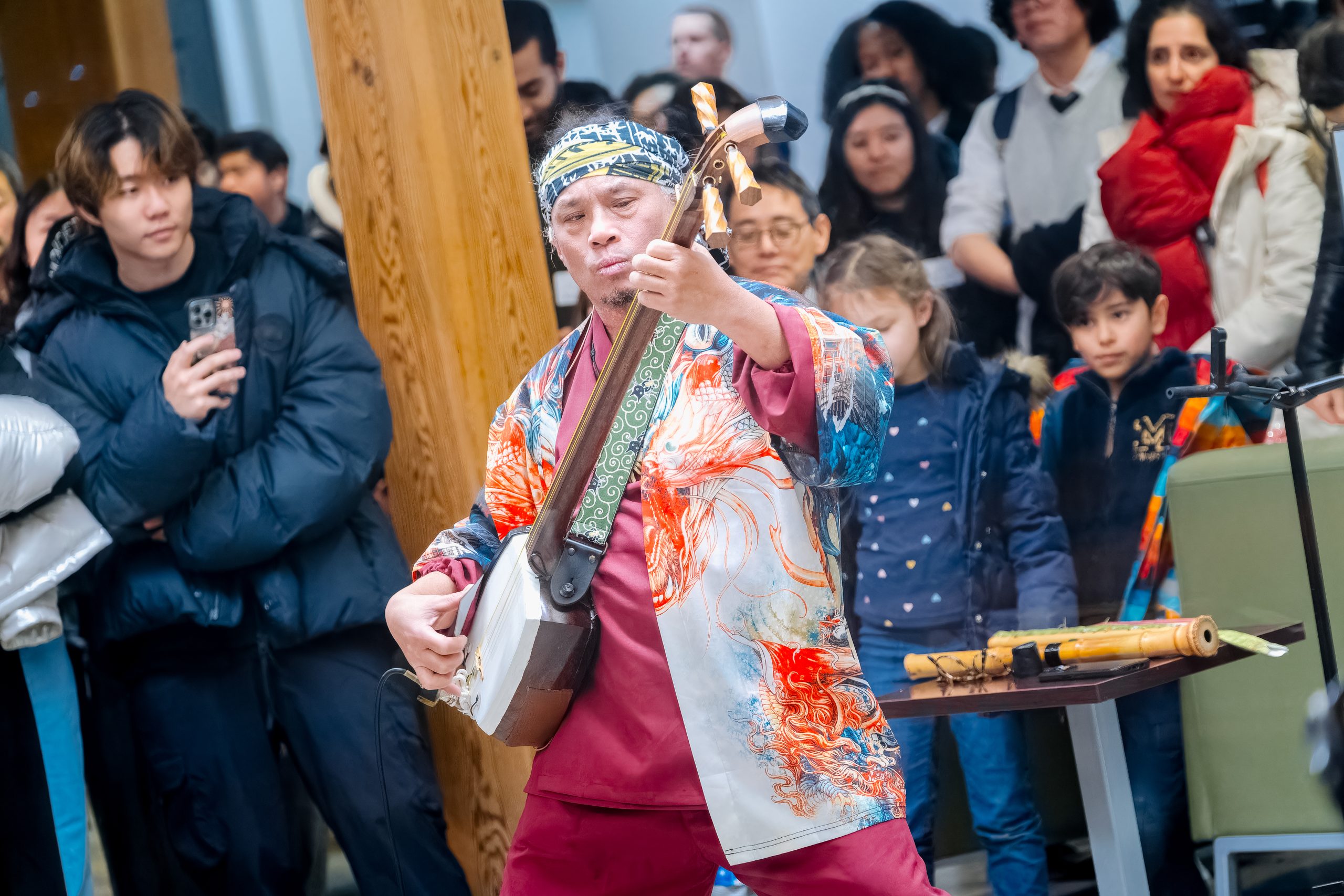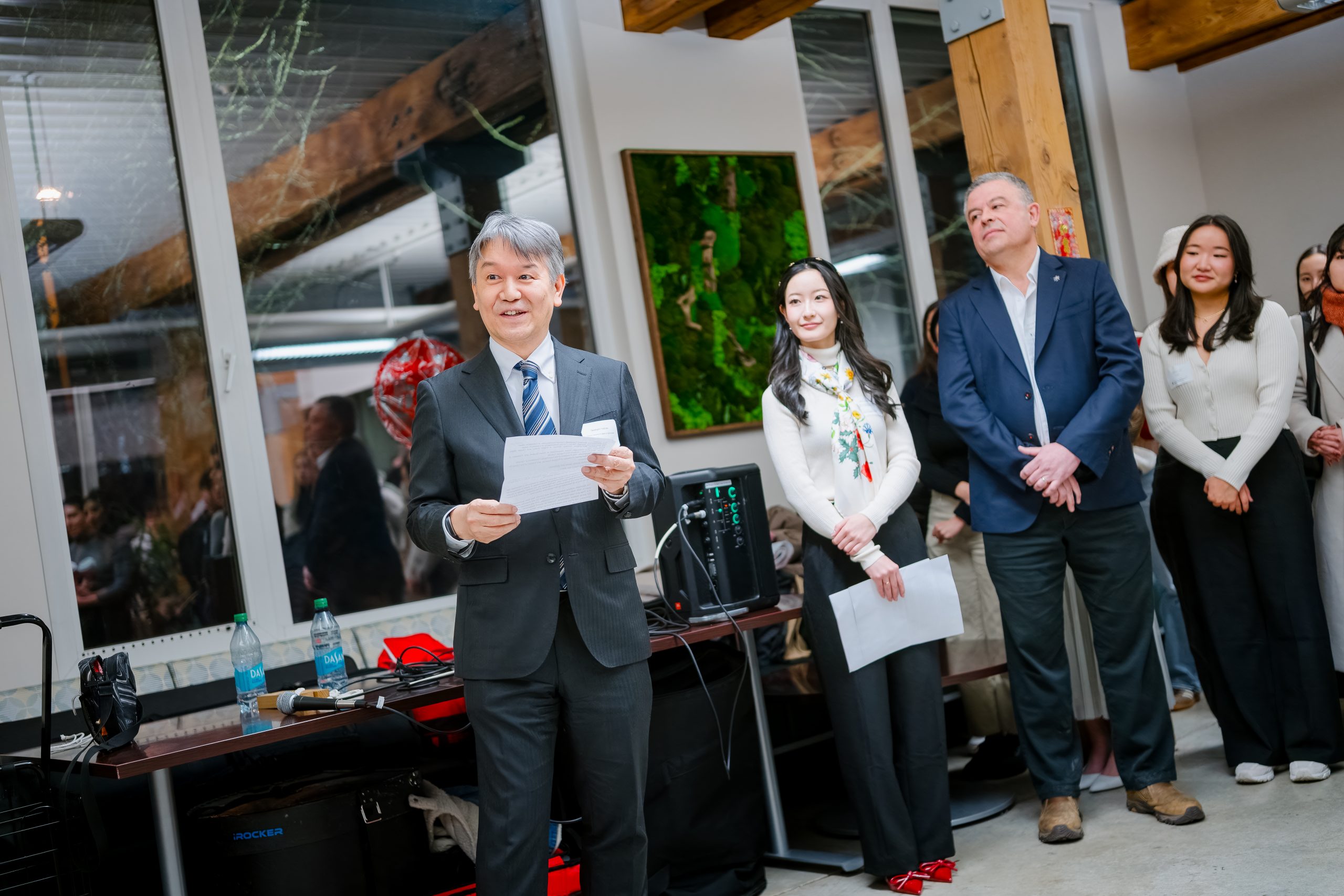

Takahashi Yoshiaki (Consul General of Japan) sharing remarks at the Shinnenkai New Year Celebration, January 2025 (image credits: Si Ming Zheng)
As the 2024–2025 academic year draws to a close, the UBC Centre for Japanese Research (CJR) is proud to reflect on a year rich with dialogue, cultural exchange, and intellectual
community. This year, we welcomed a diverse array of scholars, professionals, and students to explore pressing issues shaping Japan and the Asia-Pacific region—while also taking time to
celebrate the joy of connection and cultural heritage. Among our many activities, two events in particular stood out as meaningful markers of our mission and momentum—Shinnenkai 2025: A New Year Celebration and the timely seminar Changing Geoeconomics in the Age of Trump: An Insider View from Japan.
Our year of 2025 began on a spirited and celebratory note with Shinnenkai 2025 , held in January. More than 250 guests gathered to welcome the new year. The evening unfolded with vibrant energy, beginning with a musical performance by Bushido “Children of Song,” a dynamic duo from the Vancouver/Sunshine Coast region known for their unique sound grounded in traditional Japanese folk instruments. Their performance reverberated with positivity, setting a joyful tone and symbolically sweeping away the heaviness of the year past.
The event offered attendees a blend of cultural engagement and meaningful connection. Guests enjoyed a variety of Japanese food including sushi, Japanese pastries from Kanadell Japanese Bakery and immersed themselves in interactive activities such as DIY kakizome , where participants expressed their hopes and goals for 2025 through calligraphy. The community resolution poster soon overflowed with beautiful wishes in ink, a testament to the shared spirit of optimism.
This year’s Shinnenkai also featured a distinguished roster of attendees, including Consul General of Japan in Vancouver Takahashi Yoshiaki, Asia Pacific Foundation Vice President Vina Nadjibulla, and His Excellency Joseph Caron, former Canadian Ambassador to Japan and recipient of Japan’s prestigious Order of the Rising Sun. Their presence reminded us of the enduring bonds between Canada and Japan—and the essential role CJR plays in strengthening these ties through academic and cultural dialogue. Students, scholars, and professionals alike found themselves in conversations that deepened existing networks and sparked new opportunities for collaboration in Japanese studies and beyond.
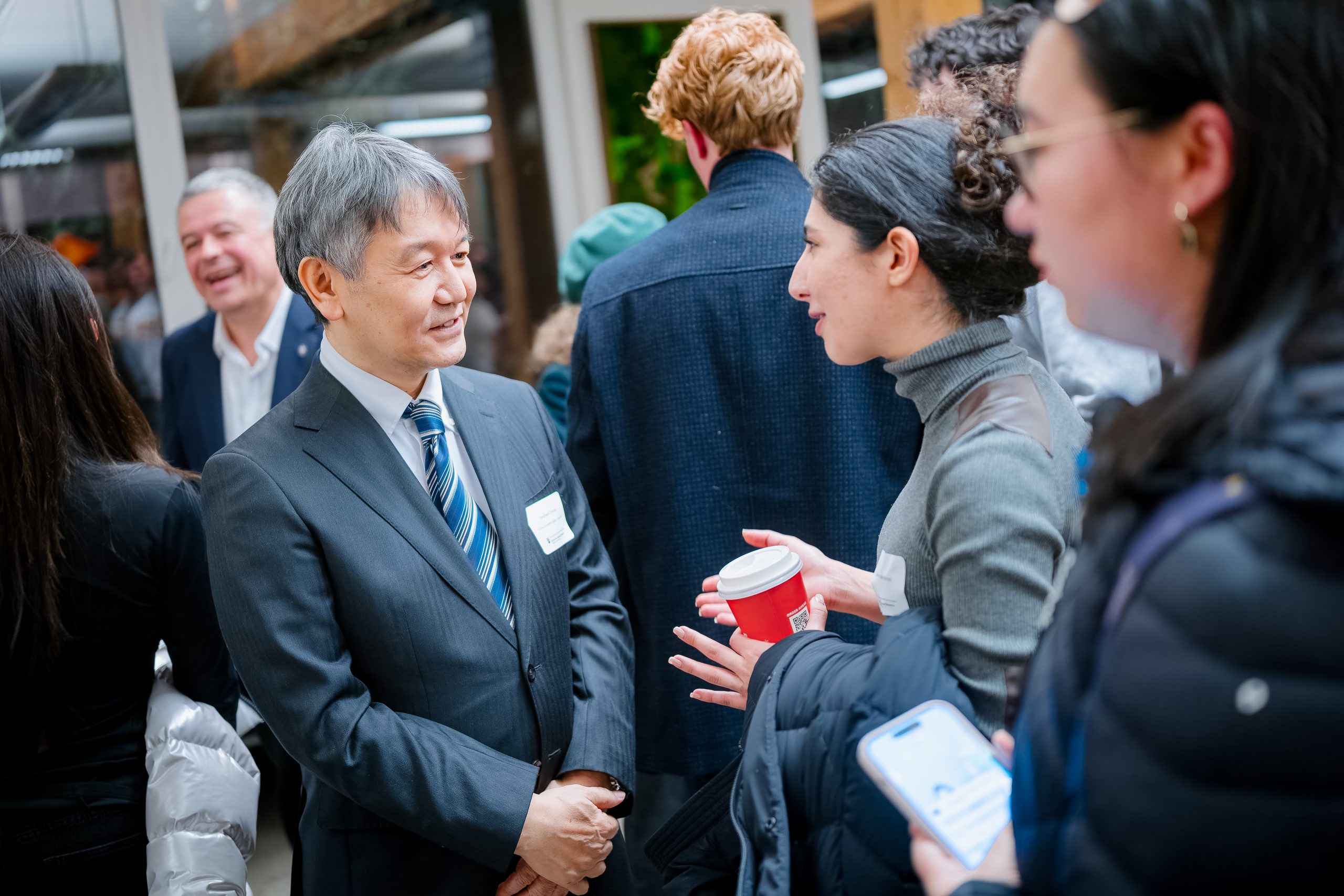
Consul General Takahashi Yoshiaki connecting with guests at the Shinnenkai Party
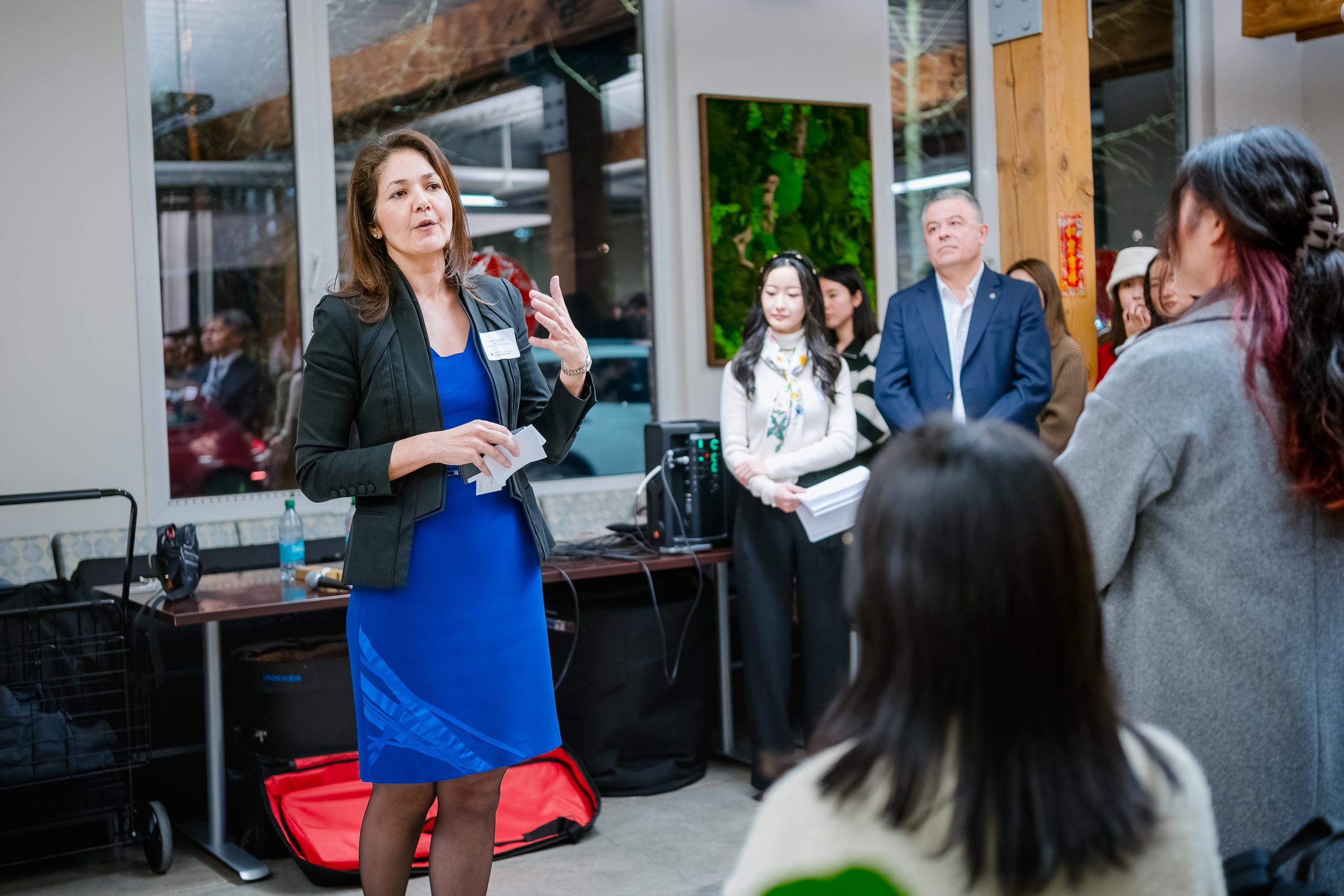
Dr. Vina Nadjibulla speaking at the Shinnenkai Celebration
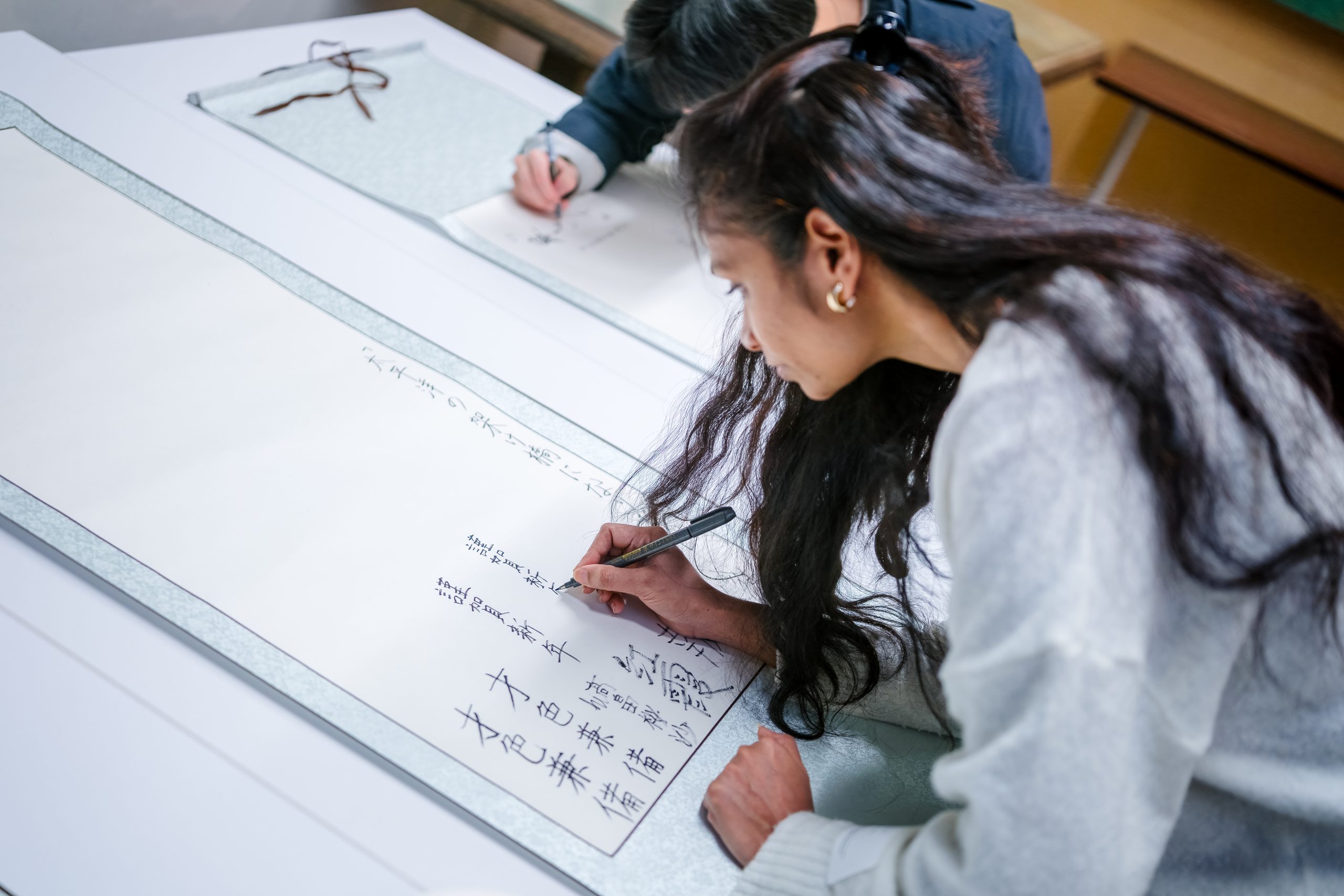
Kakizome: Students participating in the Japanese tradition of writing calligraphy to welcome the new year
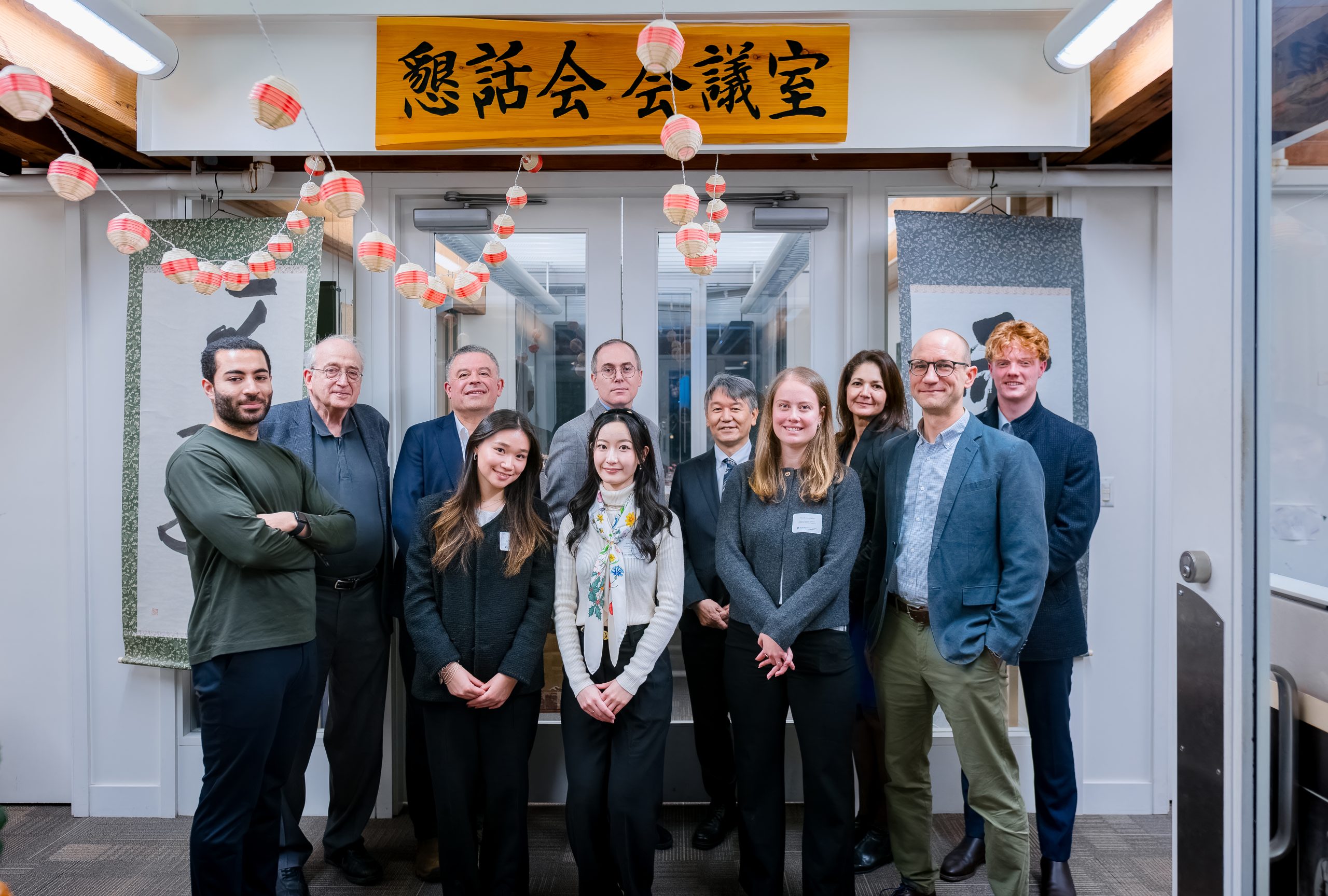
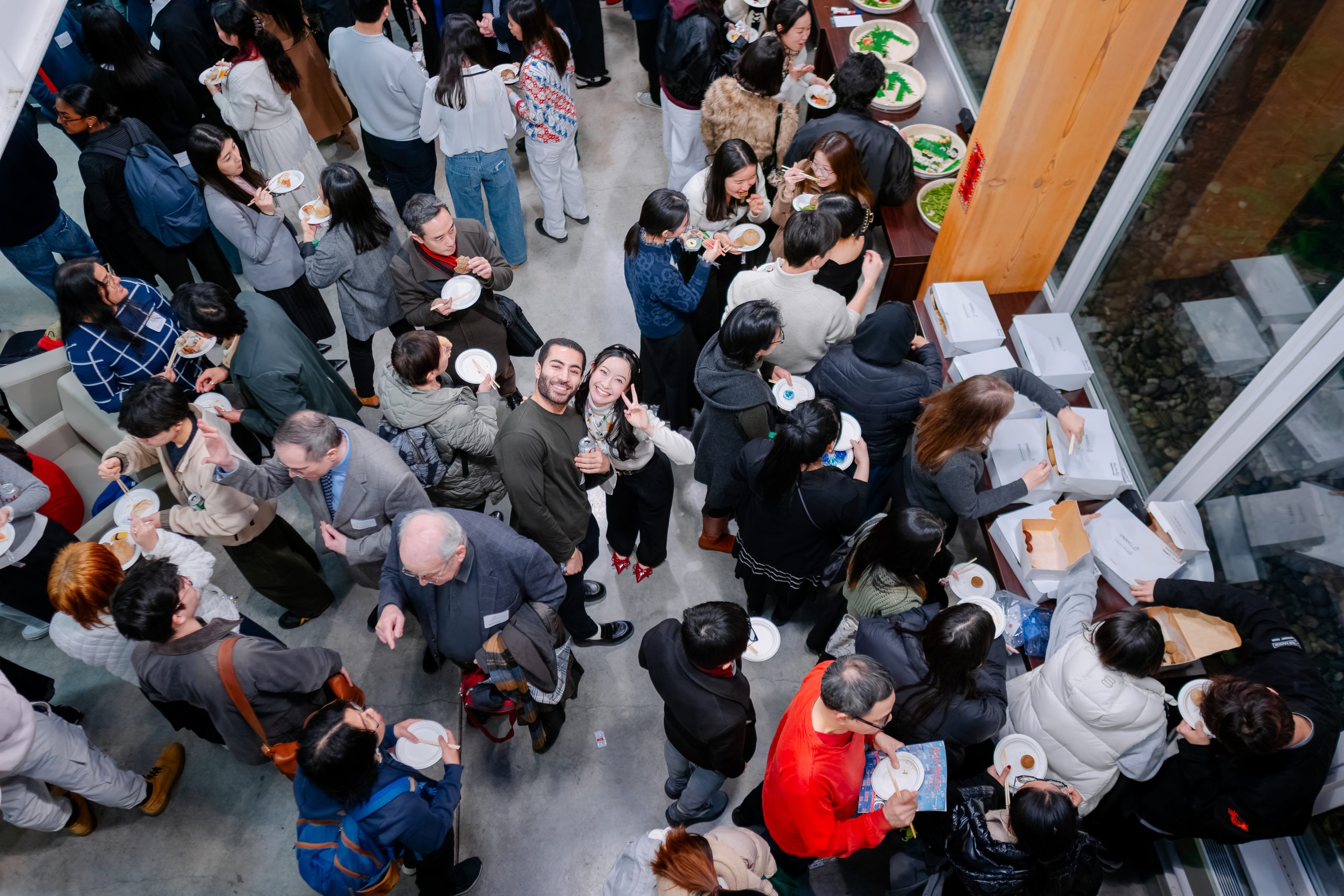
The Shinnenkai Event in Full Swing
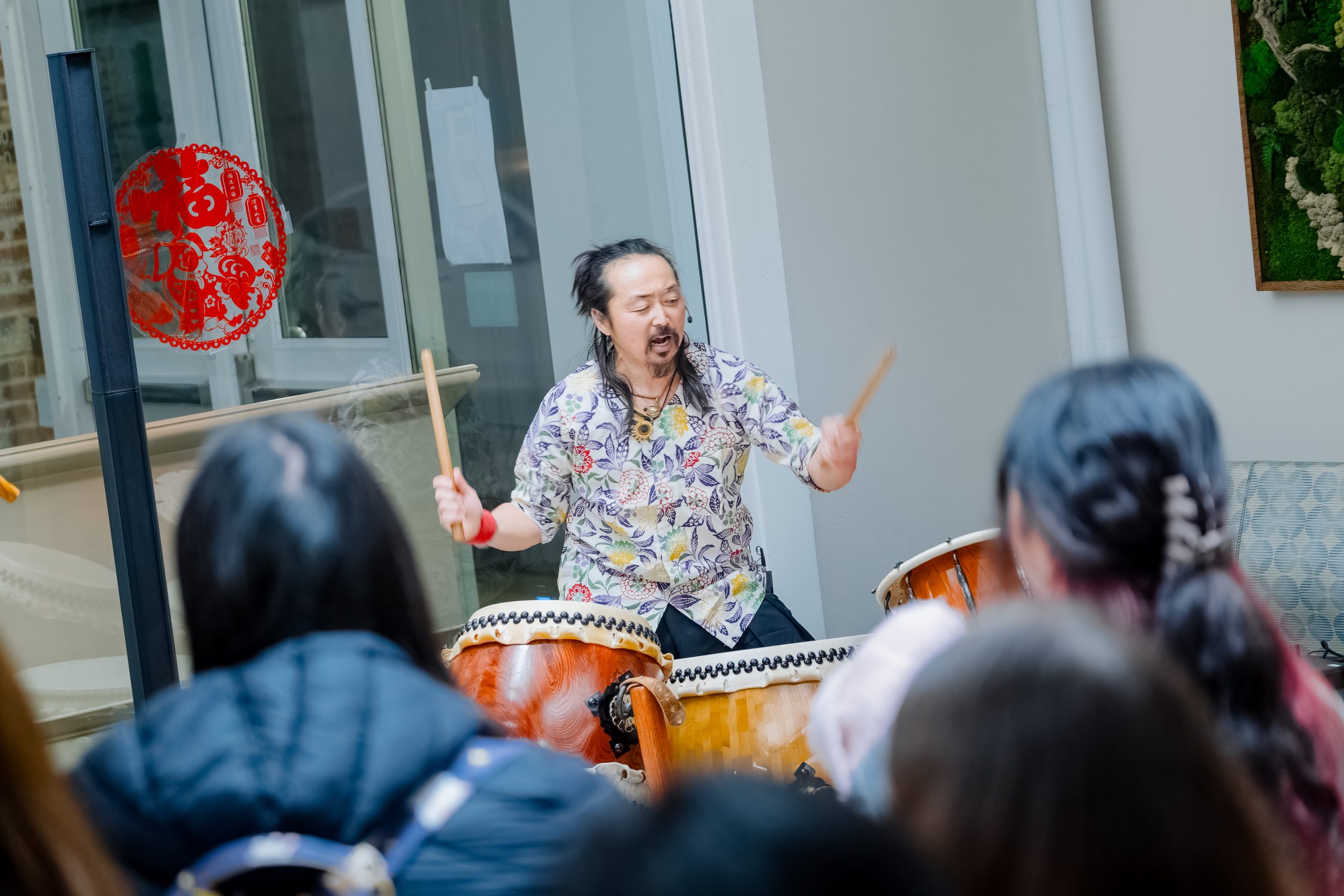
Bushido “Children of Song performing traditional Japanese folk music
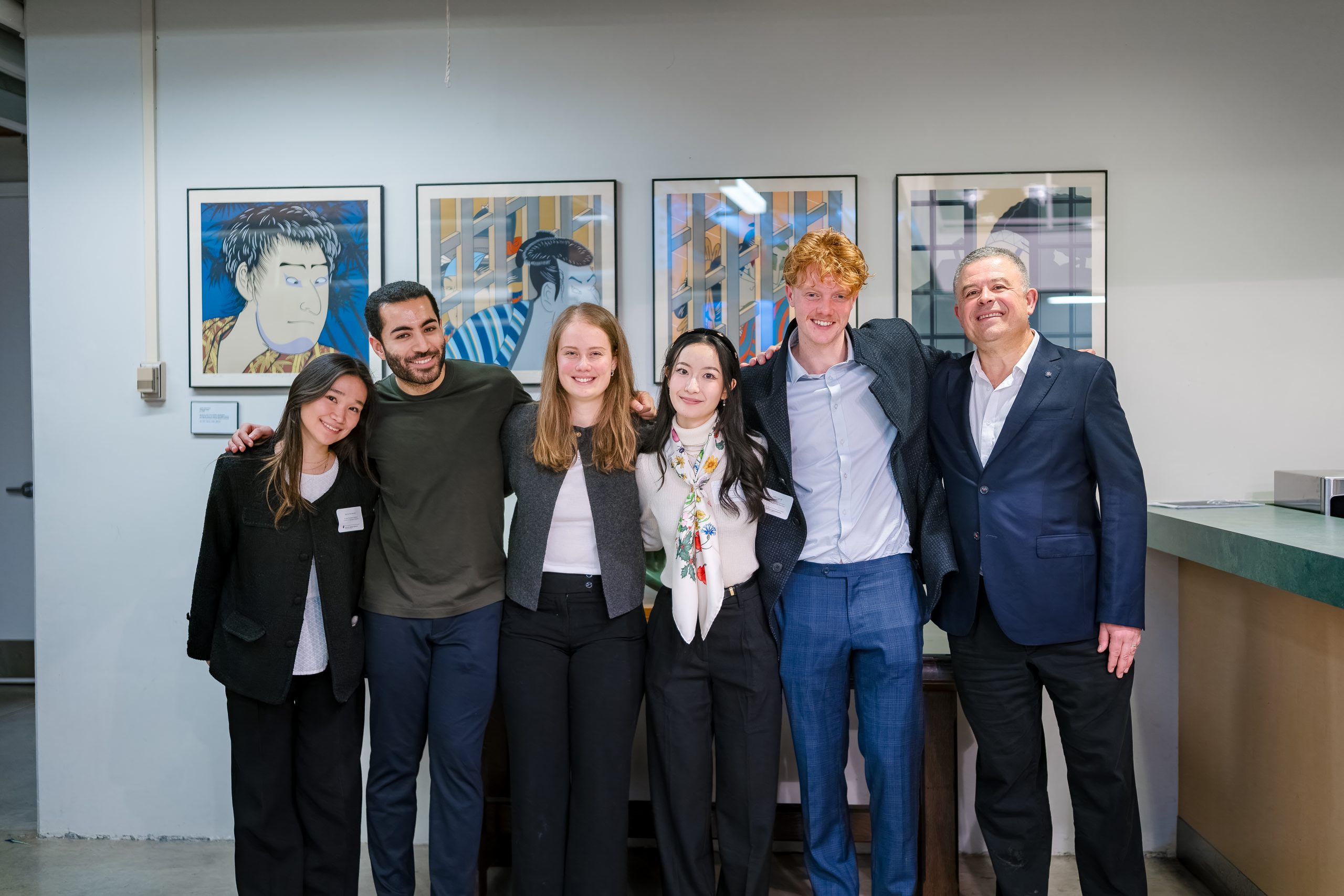
While the Shinnenkai nourished the heart, another highlight of the academic year sharpened the mind. In March, CJR hosted Changing Geoeconomics in the Age of Trump: An Insider View from Japan , a thought-provoking public dialogue with former Japanese parliamentarian and Minister of Justice, Mr. Hideki Makihara. With clarity and candor, Mr. Makihara offered a rare glimpse into the inner workings of Japanese policymaking and the dilemmas faced by Tokyo in a time of global upheaval.
In a packed room filled with students, researchers, and policy enthusiasts, Mr. Makihara traced the trajectory of Abenomics, reflected on Japan’s economic security strategies, and offered candid commentary on Japan’s diplomatic calculus amidst rising U.S.-China tensions and the possible return of Donald Trump to the White House. Students engaged enthusiastically, asking incisive questions and gaining first-hand insight into Japan’s economic and foreign policy from a seasoned political figure. The event exemplified CJR’s commitment to providing access to high-level dialogue that bridges academia and the world of practice.
As we reflect on these moments, CJR is deeply grateful to all who contributed to our programming this year—our speakers, partners, volunteers, and of course, our attendees. We
especially thank our institutional collaborators, and our many colleagues across UBC whose support makes these events possible.
Looking ahead, we are inspired by the engagement we have witnessed and the connections we have fostered. Whether through cultural celebration or critical policy dialogue, CJR remains
committed to building a vibrant, inclusive space for understanding Japan in all its dimensions. We are grateful to everyone who joined us for this journey and we look forward to
welcoming our community back in another year to come.
